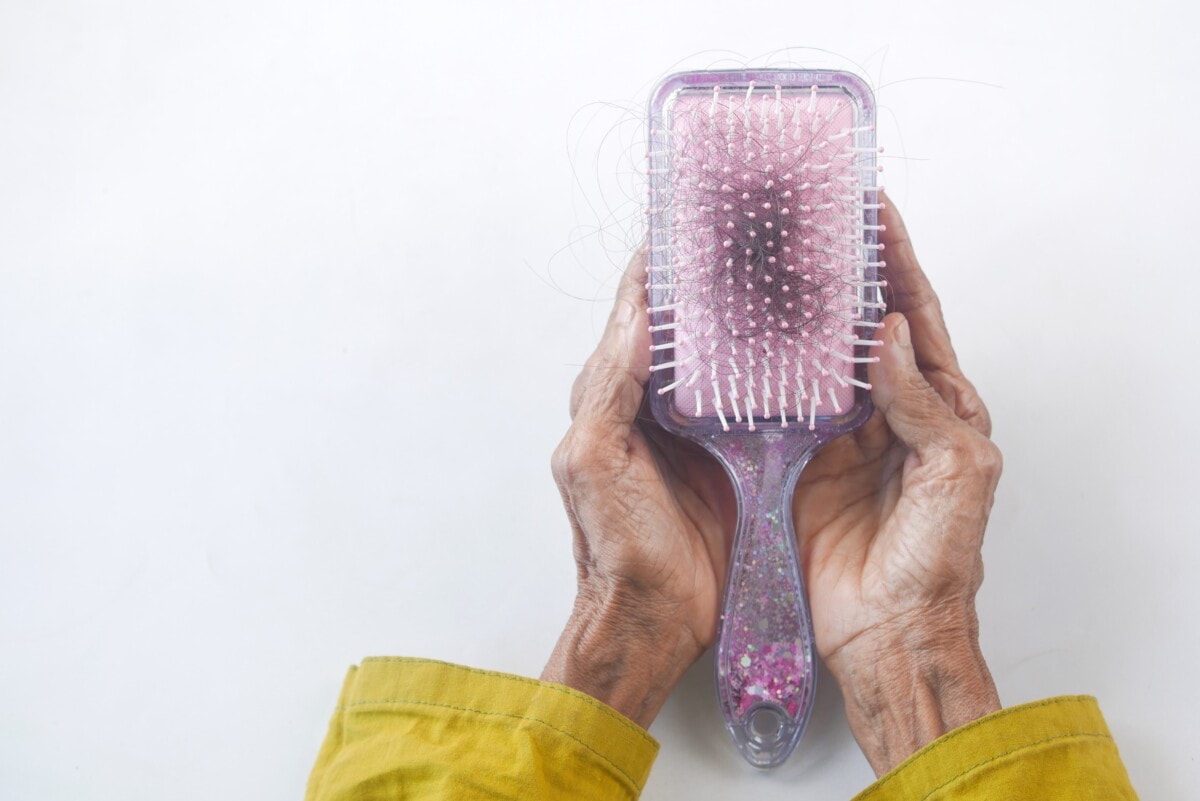Hey, dear friends! Hair loss is a common problem in women, which intensifies especially in autumn. It can worry and make our lives miserable, especially when we are trying to grow long hair. Fortunately, there are effective home methods for this. Here are some frequently asked questions about hair loss, the causes of this problem and effective remedies:
Why does hair fall out excessively?
- Genetics: A tendency to hair loss can be inherited.
- Hormones: Hormonal changes, such as pregnancy, menopause, or hormonal disorders, can affect hair loss.
- Stress: High levels of stress can lead to what is known as telogenetic alopecia, where hair goes into a resting phase and then falls out.
- Improper diet: Lack of adequate nutrients, especially vitamins and minerals, can contribute to hair weakness.
- Scalpdiseases: Disorders of the scalp, such as psoriasis or seborrheic dermatitis, can lead to hair loss.
- Thyroid disorders: Thyroid problems can affect hair growth.
What are effective methods to prevent hair loss?
- Balanced diet: Eating healthy, nutrient-rich meals, especially those containing vitamins A, C, E, biotin, iron and zinc.
- Avoiding stress: Relaxation techniques, meditation, or regular physical activity can help control stress levels.
- Regular hair hygiene: Keep your scalp clean by using mild shampoos and avoiding excessive use of hot water.
- Avoid over-processing hair: Limit the use of hot styling tools, as well as chemical treatments.
- Supplements: For vitamin and mineral deficiencies, dietary supplements can be an effective aid.
- Topical treatment: Special shampoos, conditioners or preparations containing minoxidil may be considered.
- Medical consultation: In case of excessive hair loss, it is always a good idea to consult a doctor to rule out serious health problems.

Similar: oiling the hair for a month | the beginning of the treatment
Hair loss: what is missing in the body?
Hair loss can be related to various factors, including nutrient deficiencies. Here are some key nutrients whose absence may contribute to hair loss:
- Iron: Iron deficiency can lead to anemia, which can affect hair health.
- Biotin: This is a B vitamin that plays an important role in hair, skin and nail health.
- Zinc: It is essential for cell growth, including hair cells. Zinc deficiency can contribute to hair loss.
- Vitamin D: Studies suggest that vitamin D deficiency may be linked to skin problems, including hair loss.
- B vitamins: In particular, vitamins B6, B12, folic acid and niacin are important for hair health.
- Vitamin A: Excess or deficiency of vitamin A can affect the health of the skin, including the scalp.
- Copper: Takes part in hair pigmentation processes. Copper deficiency can affect hair color and texture.
- Linoleic acid: This is an omega-6 fatty acid that supports skin and hair health.
- Protein: Hair is composed mainly of protein, so sufficient levels of complete animal protein in the diet are crucial to maintaining healthy hair.
When is hair loss a concern?
Hair loss is a natural process, and everyone loses a certain amount of hair every day. However, there are several situations in which hair loss can be worrisome and requires consultation with a doctor:
- Excessive hair loss: If you notice that you’re losing significantly more hair than usual when washing, brushing or going about your daily activities, this could be a signal of a problem.
- Rare areas or alopecia areata: If you notice areas on your scalp where hair is becoming sparser or disappearing altogether, this may indicate alopecia areata.
- Hair loss in postmenopausal women: In postmenopausal women, an increase in male hormones can contribute to hair loss. If you notice this, it’s worth consulting your doctor.
- Hair loss in young people: If a young person (e.g., under the age of 20) is experiencing significant hair loss, it may require special attention.
- Sudden or rapid hair loss: If you notice sudden, rapid hair loss, it may be related to some event, such as an illness, hormonal disorder or high stress.
- Changes in hair texture: If you notice changes in the structure of your hair, such as thinning, weakening, or a change in color, this could be a sign of a problem.
- Changes on the scalp: Scalp problems, such as itching, flaking, or redness, may be related to hair loss.
To summarize the causes and effective methods for hair loss:
Remember that each person may have individual causes of hair loss. However, if you notice any of the above symptoms, it’s a good idea to consult a dermatologist or trichologist (a specialist in hair and scalp health). This professional can conduct a thorough analysis and diagnose the causes of hair loss and recommend appropriate treatment or therapy. It is important not to underestimate the problem, because in some cases hair loss can be a symptom of a health condition that requires treatment.
